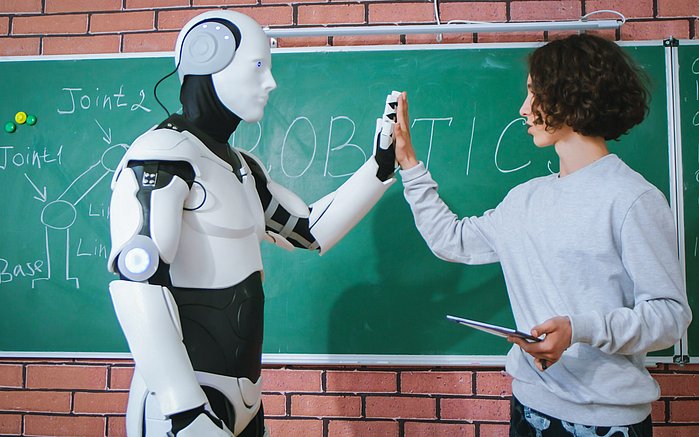How Ai Educational Technologies Can Support Learning
Over the past century, numerous technologies have become so transformative and ubiquitous that they changed fundamental aspects of society. Their emergence led many to hail each as transformative for education. For example, radio was once thought to be “destined to take its place among the great educational influences.” In 1923, Thomas Edison predicted that movies would replace textbooks within 20 years. In 1966, philosopher Patrick Suppes predicted that students using computers would soon have tutors as well-informed and responsive as Aristotle.
Needless to say, those predictions haven’t exactly panned out. Now, we stand at a different moment, where emerging technologies like Artificial Intelligence (AI) and Virtual Reality (VR) may potentially have transformational impacts on many aspects of society. But will they really have a big impact on education? Here, let’s explore some potential use cases which may indeed lead to widespread changes and improved outcomes, particularly focusing on how AI tools can enhance learning.

AI-Powered Language Learning
Creating dynamic and engaging dialogues requires powerful capabilities, such as natural-sounding language generation and real-time translation, all managed by AI systems. Generative AI systems are outshining previous technologies in this area. While tools like Google Translate are helpful for short text snippets, they often struggle with longer, idiomatic expressions. In contrast, tools based on Large Language Models (LLMs) are much more capable.
Pairing these language and translation capabilities with VR experiences can lead to interactive language exercises and games, allowing learners to use their language skills to achieve engaging and meaningful goals. For example, developers are using Generative AI systems to enable players to chat with video game characters. We may soon see language learning experiences delivered entirely in VR games, where learners actively engage in conversations to develop proficiency.
Real-Time AI Tutoring
Generative AI tools like ChatGPT can support learners through real-time tutoring. Research shows that tutoring is effective due to the cognitive scaffolding and motivational support tutors provide. AI tools can offer explanations, review student work, provide feedback, and deliver step-by-step guidance, making tutoring powerful.
On the motivational side, AI systems can provide empathetic and emotionally supportive responses with the right instructions. They can help students develop emotional regulation skills. Additionally, AI can play the role of a learner, allowing students to serve as tutors. Research on “Teachable Agents” shows cognitive and motivational benefits when students help a computerized persona learn. Students feel ownership and responsibility for the teachable agent, eager to help them learn. New AI systems will likely emerge, helping students develop their skills by teaching an AI-powered student.

Collaborative Learning with AI
Technology infusion doesn’t mean students will only interact with software. Social aspects of learning are crucial for developing skills, creating a sense of community, confidence, and resilience. New technologies can create impactful social learning opportunities. AI can guide in-person activities or lead text-based systems like discussion boards.
Online courses and learning communities can connect learners worldwide. VR can make these interactions more engaging by creating shared virtual spaces for people to inhabit together.
Focus for the Future
It’s easy to get excited about new technologies. However, for any new tool to benefit education, certain elements must be present. Students need opportunities for meaningful practice, timely feedback, social connections, and support. When evaluating new educational technologies, look for these elements to determine their potential positive impact on learners.
About the author
Dan Belenky, Ph.D. is a cognitive scientist with a passion for using learning science research to help educators and learners achieve their academic goals. He has over 15 years of experience researching the psychology of learning, motivation and overcoming challenges, and applying it to the design of educational experiences.
Explore strategies to build resilience in English Language Learners in Dan’s whitepaper, “Brave Steps, Bright Horizons: Teacher strategies for supporting resilience In English Language learners”.
